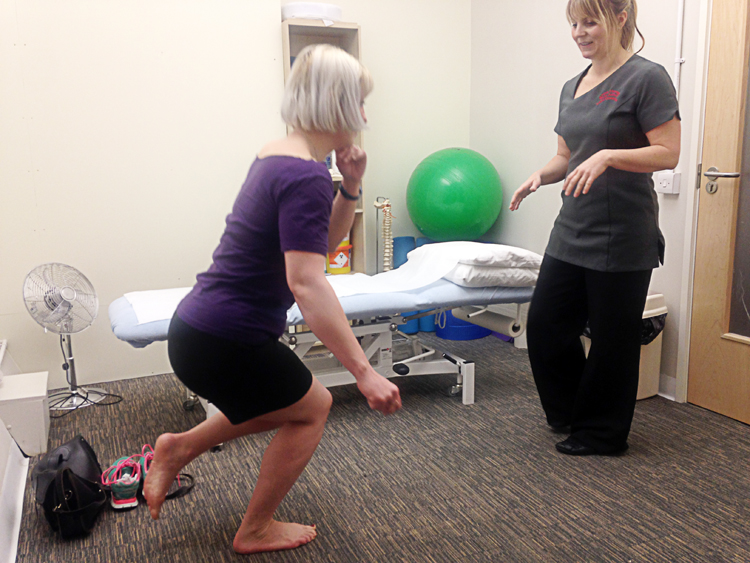If you’re taking part in a sport or even just exercising regularly it’s likely you’ve been injured at some point. These things happen when you’re active.
Over the last 5 years I’ve been kept from running by shin splints and a pulled hip flexor. And been kept off skates by 2 sprained ankles, a PCL injury, a bad back and a concussion. I’ve also had any number of minor niggles that I’ve taped up and soldiered on with.
Whether it’s running, roller derby, cross fit or a weekly bootcamp class, your sport becomes a cornerstone of your life and when an injury means that you’re out of the game for anything from a few weeks to a few months, it’s easy to get frustrated.
My most serious injury was a sprained ankle that kept me off skates for 2 months, but I’ve seen many other people go through injuries that have kept them from working out as well.

There are 2 sides to dealing with a serious injury. First up is the physical side. As well as the simple physical recovery, without an outlet for all that energy, many people find that they are restless, irritable and can’t sleep. This also includes worrying about loss of physical fitness, weight gain, and whether they will be able to return to training at the same level as before.
Secondly is the mental side of dealing with injury. Fear of being injured again is a big issue, and for lots of people exercise is a coping mechanism for stress and anxiety, without it these can rear their head.
This might not be of use to you now, but squirrel it away for the future just in case. Whether it’s a torn ligament or a broken bone, here are some tips to help you get through it and come out stronger on the other side.
Treat Rehab As Training
You can help your injury recover well, but you can’t speed it up.
When I started training for my first half marathon I didn’t leap straight into weekly 10-13 miles runs. I built up slowly. So it is with rehab.
Replace your regular workout program with your rehab, and treat it the same way and with the same dedication. Take it slow and be aware of what your body is telling you. Keep a “training diary” where you can record improvements each week and set small achievable goals.
Work on Other Areas
Just because you are injured, it doesn’t mean there’s nothing you can do. Unless you are completely bed bound there’s always something you can do, even if you can’t do anything high impact.
Work on your core strength or upper body strength, or try something low impact like swimming.
Yoga can help with the rehab of some injuries and reduce your risk of future injury by improving your flexibility.
Keep Involved
If you are involved in a team sport or club then stay involved throughout your injury. It’ll make it easier to return when you’re healed and mean you aren’t separated from your support network.
Go along to training sessions and support from the sidelines. If there’s a big race you were training for, don’t miss it completely, go and cheer others on.
Remember how all consuming sports can be. Just because people from your group might not have been in touch with you, that doesn’t mean they don’t care. Take the initiative and drop them a message.
Keep a Positive Attitude
It’s easy to lose perspective and feel like this is the end and you’ll never get back to where you were before. That’s rarely true. Keeping a positive mindset will help your recovery, and ease your transition back later on.
Try meditation and visualisation, plus the mental resilience skills you learn from these can help with sports later on.
Be Realistic
Your return to sport needs to be as phased and cautious as your rehab was. You won’t return at full fitness straight away, but all your skills are still there and you will get back there.
Plan your return to your regular fitness schedule carefully and slowly build back up to your previous level. If you’ve managed to work on some other areas of your fitness while you’ve been injured, you may find the return easier than you expect, but pushing too far too fast could see you injured again, and we don’t want that!
[separator type=”thin”]
Getting injured, whether you’ve just started on your fitness journey, or you’ve been at it for years, can feel catastrophic.
Your attitude is the key to a good recovery, it’s an opportunity to learn, improve, and come back stronger than ever.
I hope you’ll never need to re-read this article, but if you do, and you’re back again. Remember, it’s not forever and you are awesome!